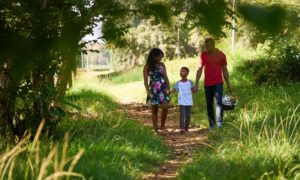Johns Hopkins Bloomberg School of Public Health, Johns Hopkins University
Using “more robust” methods than in past studies, researcher Janet Elise Rosenbaum compared the sexual behavior of teens who made “virginity pledges” to abstain from sex until marriage with that of non-pledging teens and found “virtually no difference in sexual behavior or STDs, and much less use of condoms” by those who made the pledge, according to her study.
Rosenbaum used data from the National Longitudinal Study of Adolescent Health of middle and high school youth who, when surveyed in 1995, reported they had never had sex or taken a virginity pledge. She then created two cohorts: virginal youth who reported taking virginity pledges in 1996 (pledgers) and those who did not (non-pledgers). The two cohorts were matched scientifically on several factors, including pre-pledge religiosity and attitudes on sex and birth control.
Five years later, pledgers and their matched non-pledgers were compared on self-reported sexual behaviors, the use of condoms and birth control, and whether they had ever received positive test results for any of three sexually transmitted diseases (STDs).
Astonishingly, more than eight in 10 pledgers denied having ever made the pledge when surveyed five years later.
Pledgers and non-pledgers did not differ on whether they had engaged in premarital sex, had contracted a sexually transmitted disease, or on whether they had ever had anal or oral sex. While pledgers had an average of 0.1 fewer sexual partners in the year preceding the final survey, the groups did not differ in the number of their lifetime sexual partners or on the age at which they first had sex.
Fewer pledgers than non-pledgers reported using condoms and/or other birth control in the previous year, and fewer used birth control during their last sexual encounter. Rosenbaum concludes that “clinicians should provide birth control information to all adolescents, especially virginity pledgers.”
The federal government spends more than $200 million annually on abstinence-only education, including programs that use virginity pledges. The article appears in the January issue of Pediatrics. (847) 434-4000. Free, 13 pages. http://www.pediatrics.org/cgi/content/full/123/1/e110.






























